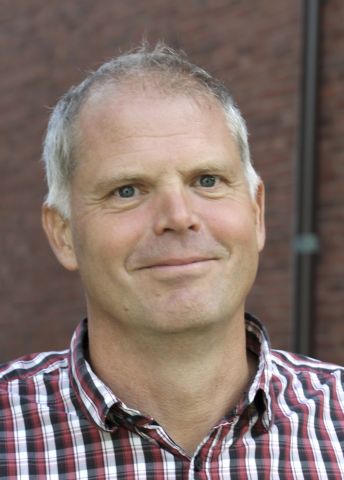
Fredrik Bäckhed
Professor of Molecular Medicine
Wallenberg Scholar
Institution:
University of Gothenburg
Research field:
The role of normal gut microbiota in metabolic diseases

Wallenberg Scholar
Institution:
University of Gothenburg
Research field:
The role of normal gut microbiota in metabolic diseases
Bäckhed has studied intestinal bacteria and common diseases for many years, and has demonstrated a correlation between those bacteria and conditions such as obesity, diabetes and cardiovascular disease. Diseases change the microbiota – the community of bacteria in the intestine – but the bacteria may also determine who falls ill. As a Wallenberg Academy Scholar, he will now be attempting to find out how the microbiota interacts with diabetes therapies.
“We know that the drug metformin helps control blood sugar levels. The same goes for gastric bypass surgery. But we don’t yet know what mechanisms cause these improvements, and this is what we hope to discover,” Bäckhed says.
Earlier research by his team has shown that the two therapies give patients a similar gut microbiota. Moreover, by transferring the new intestinal bacteria from a human to a mouse, the team demonstrated that it is possible to transfer some of the effects of the therapy. Bäckhed will now study cause and effect in the intestines in four new ways.
First of all, he will be studying the bacterial community in people with diabetes before they received medication, to see whether anything distinguishes the gut microbiota of those responding to medication, those for whom medication has no effect, and those who suffer adverse events such as flatulence and diarrhea from the medicine.
Second, he intends to study the gut microbiota of patients who have undergone weight reduction surgery, in the form either of a gastric bypass or a sleeve gastrectomy, which is somewhat less invasive and retains the intestine.
Third, he will be treating diabetic mice in two ways: surgery or metformin. Some of the mice have been bred to have no microbiota at all. This will enable the researchers to study the effects caused specifically by the bacteria.
The last part of the project involves studying cells from the intestinal wall in mice with or without bacteria, before and after various kinds of treatment. The hypothesis is that the treatments influence which genes in the cells are active. The cells will be studied immediately after they have been removed, and for an extended period while they are cultured in the laboratory, to see whether the changes persist and are passed on when they divide.
“The first part of the project has taken the longest. It was harder than we thought to collect material from untreated patients, since doctors are very quick to prescribe metformin. Many patients had already begun treatment before we were able to obtain stool samples from them.”
On the other hand, the second part of the project offers an excellent opportunity to benefit from a study that had already been planned. A Norwegian research team intends to compare the effect of the two surgical procedures, and Bäckhed’s team is collaborating with them to compare the gut microbiota of the patients before and after the procedures.
“All of this is enormously stimulating. Taken as a whole, the research involves a high degree of risk – we might not find what we expect. But it also offers huge potential. We want to ascertain precisely how the therapies work, and the extent of the overlapping effects of surgery and metformin. If we can identify the mechanisms that are most important, it may be possible to find a better medicinal therapy. That would naturally be a good thing, since weight reduction surgery is not without risks. In addition to surgical risks, there is also an increased risk of depression and suicide,” Bäckhed comments.
“Being chosen as a Wallenberg Scholar gives me enormous freedom. I can undertake a high-risk project, and it won’t be the end of the world if the result isn’t exactly what I expected. After all, if I knew the answer to my questions, I wouldn’t need so much time to get to the bottom of them.”
He also believes that supplements containing the right kind of bacteria could enhance the efficacy of therapeutics and reduce their adverse events. His team is conducting another project, in which it has developed a bacterial treatment of this kind. Bäckhed has now applied for permission to try it out on people with prediabetes. Can the process be slowed down? Or can bacteria help when medication becomes necessary?
“I think there may be certain bacteria that help people who are only mildly affected, and others that enhance the effects of metformin.”
Bäckhed was the first member of his family to go to university. As a young boy, he never imagined a life as a researcher. But he developed a keen interest in biology at an early age, spending time outdoors with his grandfather looking for insects, collecting seeds and growing flowers. An inspirational high school teacher spurred him on, and Bäckhed’s first thought was to be a teacher too. But during his degree course he had the opportunity try graduate school for a time, and realized he had found his niche.
“I really do go to work with a smile on my face. The best thing of all is the feeling that you are creating new knowledge – ‘this is something no one knows yet’. It might sound a bit pompous, but I’m also driven by a desire to improve the lives of others. And it’s also a great deal of fun to work with bright and dedicated researchers from around the world.”
Text Lisa Kirsebom
Translation Maxwell Arding
Photo Anna Hallén, Mattias Bergentall, Niclas Elmrin